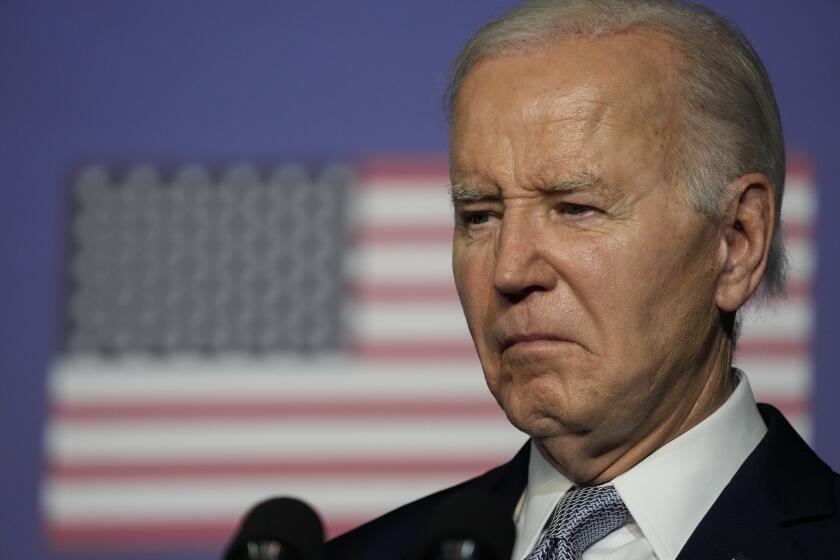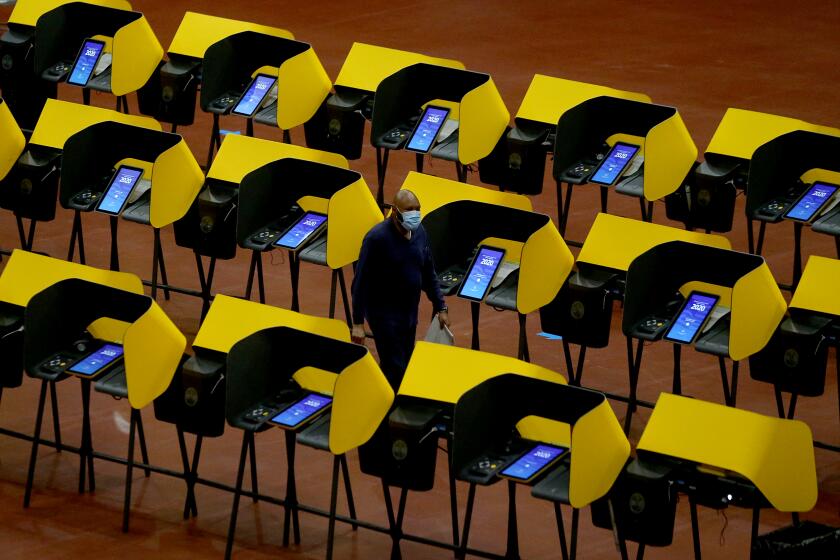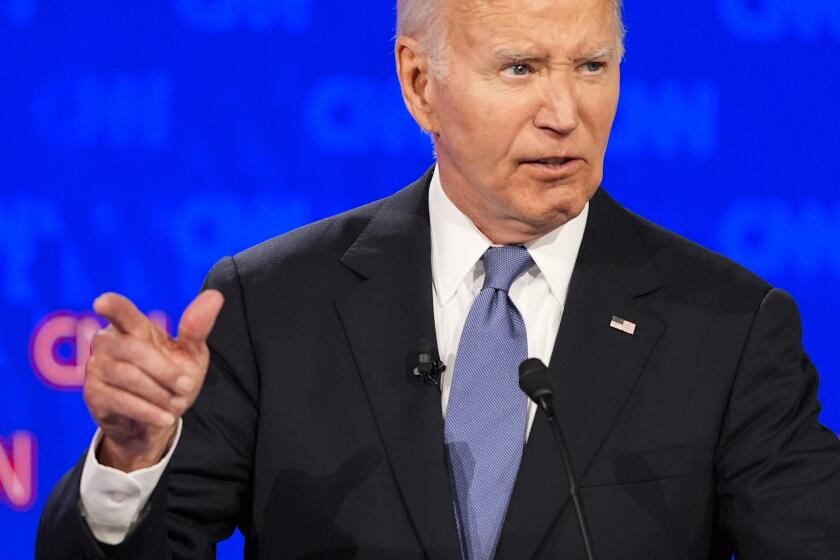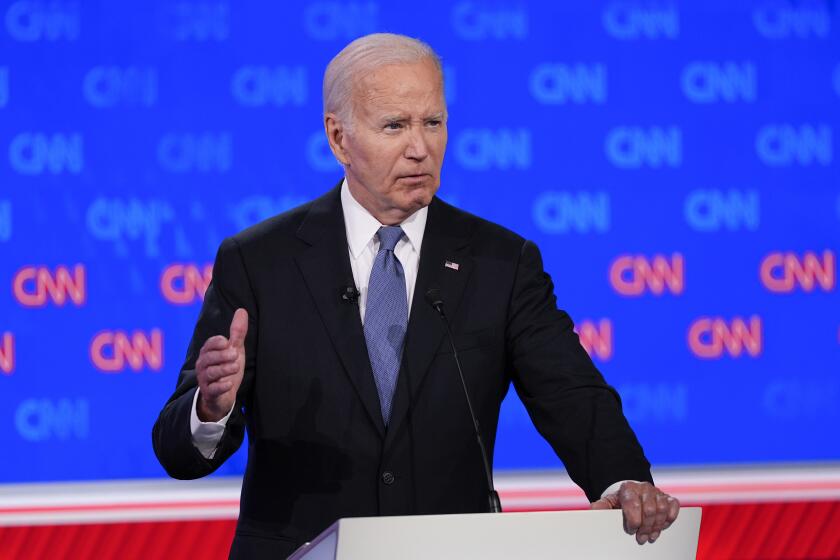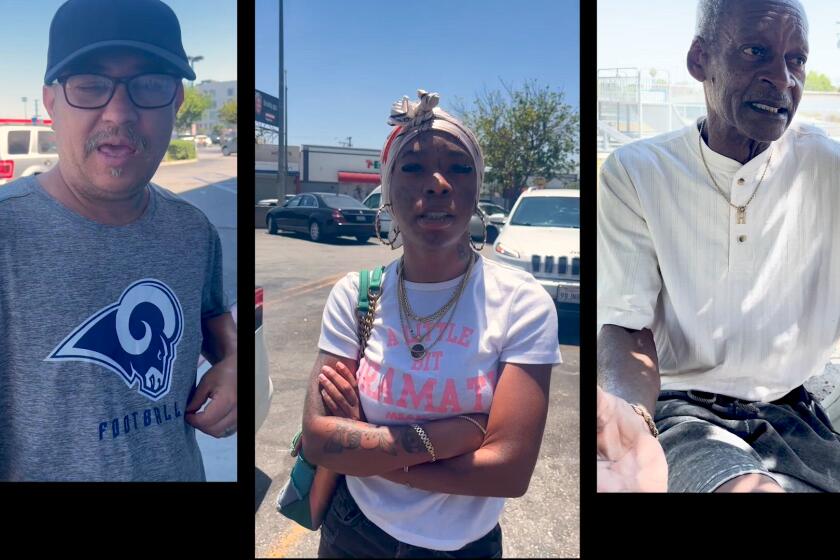Many California voters get their info from social media, even if they don’t trust it, poll shows
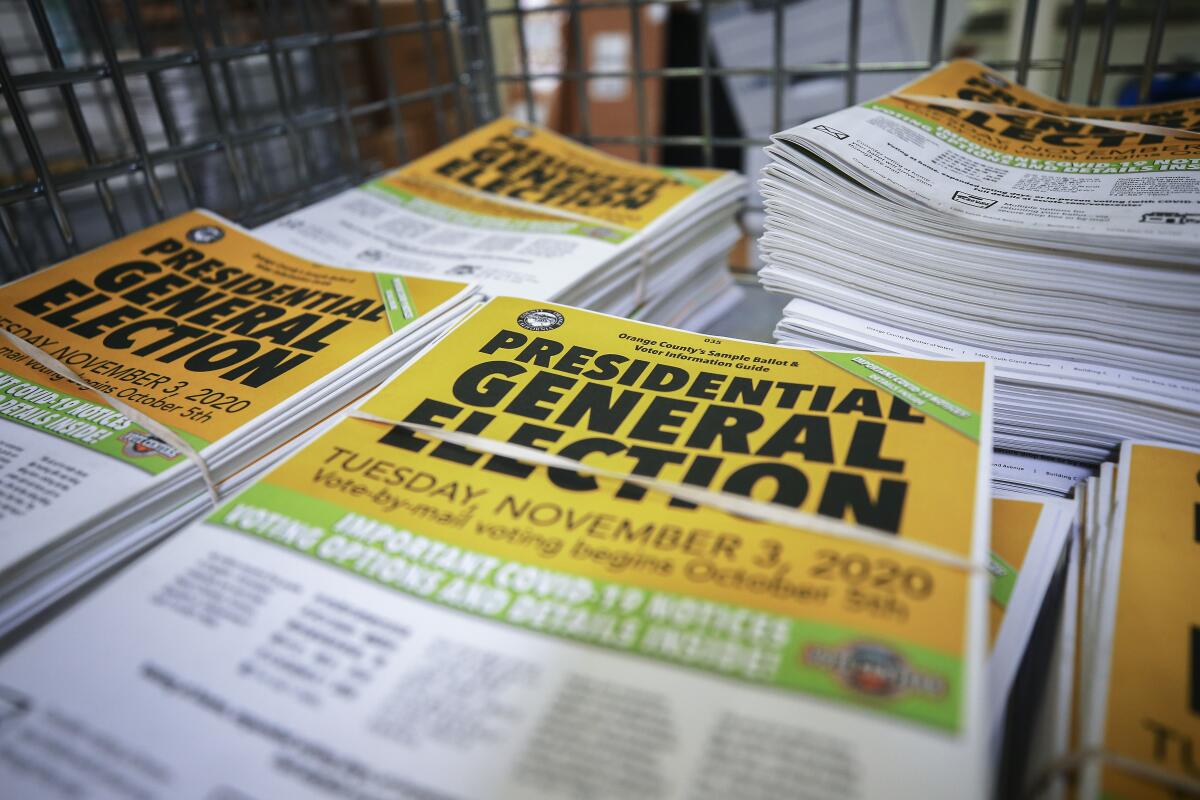
In California, where a ballot often contains pages of candidates and initiatives, most voters rely on the state-provided guide for election information, a new poll has found. But with so much at stake, Californians also seek out information from a variety of other channels — including social media, despite many saying it is an unreliable source.
UC Berkeley’s Institute of Governmental Studies found that 58% of voters turn to the official voter guides, 40% to newspapers or magazines, 39% to search engines such as Google and 32% to social media sources for their election research. YouTube is the most frequently cited social media source for election-related news, followed by Facebook, Instagram, X (formerly known as Twitter) and TikTok, according to the report.
Yet despite their affinity for these apps, 60% of voters who get election-related news from all social media sources say they believe misinformation on those very sources is a major problem. An additional 22% say it is a minor problem.
“Over 80% of Californians who get their news from social media worry that what they are seeing is not truthful or accurate. Our information ecosystems are in danger, and everyone knows it,” Jonathan Mehta Stein, executive director of California Common Cause, said in a statement. “These enormously powerful technologies that shape so much of our lives and our democratic conversation ought to be governed by a wider range of stakeholders —including government, civil society and industry — so they operate in our collective interest.”
The poll found that older voters are more likely to rely on official and traditional sources for their information — such as the voter guide, newspapers and television — while young people tend toward social media, search engines like Google and their family and friends.
Trump won in 2016 by appealing to conservative white Americans. This time, his advantage comes from Black and Latino voters.
Instagram is the most popular social media choice for young voters. The poll found that 44% of 18- to 29-year-olds use the app to get election-related news, followed by 41% on YouTube and 37% TikTok. Only 15% of 50- to 64-year-olds and 6% of those 65 and older use Instagram for the same purpose.
The poll zeroed in on TikTok, which the U.S. government has recently scrutinized for its association with the Chinese government. In April, President Biden signed a law that would ban the app in the U.S. unless an American company took ownership. The news quickly raised ire among young Americans who frequently use TikTok. The IGS poll found that 59% of 18- to 29-year-olds report scrolling TikTok. Black Californians use the app more than other ethnic groups — 58% followed by Latinos at 51%.
Jacquelyn Mason, interim executive director at Media Democracy Fund, said the deterioration of local and ethnic outlets, plus the way online platforms “deprioritize news as political,” push people to less reliable sources for information.
“This really altogether leaves mainly POC, immigrant and non-English speakers to search for information about their interests and communities on social media, which leaves them very prone to be exposed to more mis- and disinformation,” she said.
The rematch between President Biden and former President Trump may keep some voters away from the polls, a new UC Berkeley poll finds.
“If we care about ensuring voters from all communities have access to information they need and information they trust during this election, then we have to interrupt disinformation campaigns and inoculate people against them. We know that disinformation campaigns are targeting communities of color so foundations have to invest in those communities to help them push back,” said Josh Stearns, senior director of the Public Square Program at Democracy Fund, in a statement.
“Technology platforms have a huge role to play, but until they get serious about combating disinformation, the best solutions are people powered — organizers, journalists, trusted messengers,” he added.
Californians overwhelmingly support the looming U.S. ban on TikTok — 57%, the poll found. But support drops to 23% among those who use TikTok very often.
Nonusers “are supportive of pretty much what the government is doing, because they worry about the issues that are there,” said Mark DiCamillo, director of the IGS poll. “That the Chinese government could be using algorithms to shape what people see, or they could be accessing significant amounts of personal information. And there are concerns — legitimate concerns — about them, at least among California voters.”
The poll, which was funded by the Evelyn and Walter Haas Jr. Fund, surveyed 5,095 registered voters throughout California in English, Spanish, Chinese, Vietnamese and Korean.
More to Read
Get the L.A. Times Politics newsletter
Deeply reported insights into legislation, politics and policy from Sacramento, Washington and beyond. In your inbox three times per week.
You may occasionally receive promotional content from the Los Angeles Times.
